|
- Learning is Life. - We often get questions about how our intern position at the craft school works, so we put this blog entry together to describe some of the details. We offer an immersive experience in green woodworking and rural off-grid living at the Maine Coast Craft School. The internship position is an important part of our school and philosophy, and we are dedicated to offering a high quality learning experience for our interns. This position is a work-trade; participants are provided with simple housing, a modest monthly stipend for food and a spot in all of our summer classes, in exchange for their labor and participation in our various out-of-class activities and efforts during a 6 to 8 month period (generally from March or April until October or November). Our ideal intern will be curious and engaged in the whole experience. They will work to make the most of their time with us - whether they are processing and stacking firewood, helping to prepare materials for a class, moving logs, cooking and sharing a meal together, chatting with a drop-in visitor to our school, or learning how to build a chair in one of our craft classes. Intern tasks involve learning from and working with Kenneth on things like the craft school’s buildings and grounds, class set-up and clean-up, obtaining and preparing materials, caring for and organizing hand tools, cleaning the loo, general maintenance, hauling water for the school kitchen, moving heavy things, as well as sweeping and tidying and learning where things go. Interns work closely with Kenneth and they are an integral part of the culture of our school community. Interns can learn about the craft of teaching too if that is of interest. Kenneth is always pleased to support aspiring teachers by providing opportunities for them to observe his methods of instruction, engage in teaching-related discussions and by working with our students in an assistant role if that is appropriate to the interns’ skills. We calculate roughly two days of intern work is equivalent to one in-class day for our work-trade. That formula takes into account our investment over the years in all the things required to stage a successful series of classes. We will work with individuals to balance the overall work-trade schedule with our requirements around class preparation and time off. During our class season, there is a lively, social atmosphere and we share quite a few meals together. Swimming in the pond, sauna-ing, hanging out around the fire pit, carving or crafting together and making pizza in the wood-fired oven at the school are some common leisure-time activities here. Interns have their own living space, which guarantees their privacy during off hours. On days when we are involved in a class, and also when the intern is at the craft school working with Kenneth, a willingness to participate in and be a friendly representative of our school and our household is truly valued, appreciated and expected. Class-day responsibilities generally involve helping Kenneth get the building open, setting up for the day and assistance with organizing hand tools. There is often a bit of orienting other students towards specific tools or materials when needed, since the intern will have come to know their way around the workshop by the time we start classes. Beyond that, classes are for concentrated learning, and our intern is treated as a full student. We try to ensure that they have the space to be fully involved without distractions of other responsibilities during class hours. This internship position is modeled on Kenneth’s time as the summer intern at Country Workshops in North Carolina in 1995. Kenneth couldn’t afford to pay for classes at the time, and he needed an accessible way to get practical experience and skills. Work trades and apprenticeships, like the one with Drew and Louise Langsner, provided his foundational learning and living experiences, and he was able to build on the practical skills that he gained as an intern there. Bringing presence of mind and care to every task is one of Kenneth’s hallmarks, and he appreciates working with individuals who possess a strong sense of responsibility for their own learning. Angela’s experiences as a visual artist, college professor, domestic engineer and business owner have been acquired through her numerous paying jobs, several educational institutions attended and by necessity. She definitely feels that learning happens every day, with all tasks and interactions, and she senses that she has a lot to learn. She is happy to share knowledge about the behind-the-scenes aspects of running a business, cooking for large groups, or any of her other specialties, if an intern is keen to learn (although these things are not official parts of our internship position). This exchange is our way to try to make deep learning available to individuals who cannot afford the roughly $10K in tuition. The housing and food stipend amounts to around $3K of active support. It’s often a big stretch for people to take 6 or 8 months away from whatever life they are leading, and we offer as much as we can to support the people who do manage to come live and work with us. We are proud of the range of our curriculum and the depth of instruction in each of our classes. Our interns develop a thorough and compelling portfolio of skills, building a considerable variety of objects during their time here, and we hope that these things will help them find meaningful and fruitful occupation going forward in their lives. Our experience has shown that an in-depth education in hand crafts, self sufficiency, and a strong, lived example of skilled simple living, like we offer, is exceedingly rare in our culture. We believe that this kind of education can help all people, and we want to share what we can with anyone who is interested. We offer this spot each year, and the process generally begins up to a year in advance as we make contact with and get to know interested individuals.
We are always especially pleased to offer our internship position to individuals who are underrepresented in the world of hand crafts and woodworking, and we actively seek to encourage and support them in applying. The kinds of folks we hope will apply for the internship are the ones who are willing to work with us, to meet us where we are, to teach us and learn with us in becoming more present, more kind, and more engaged in our daily lives. We commonly connect prospective individuals with one or more of our previous interns, so people have the opportunity to ask lots of questions and to get a solid sense of other peoples’ experiences here in this same internship position. One way that we use to connect with prospective interns is to have them take a class with us (usually we set this up as a short-term work trade) so that we can meet and work together to get to know one another. To see a list of our classes and class descriptions, you can go to: https://www.mainecoastcraft.com/class-descriptions.html Please be in touch via email if you have questions or an interest in our internship program. Thank you, Angela & Kenneth Kortemeier 260 Old County Road Bristol, ME 04539 [email protected]
0 Comments
Leave a Reply. |
Details
Authors:
Angela & Kenneth Kortemeier If you'd like to sign up for our email list, please follow this link:
The little button below (RSS feed) will allow you to
follow the blog without subscribing to the newsletter. Archives
March 2024
Categories |
Proudly powered by Weebly

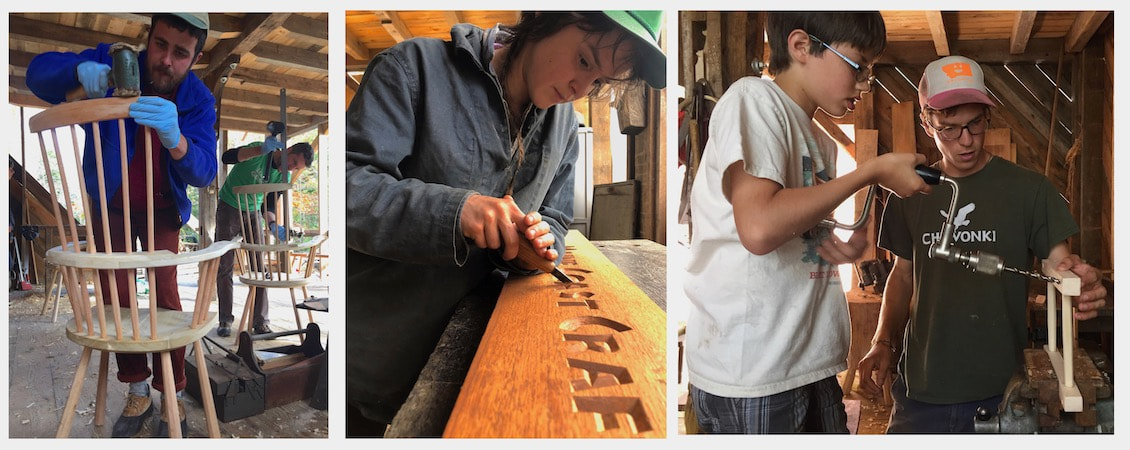
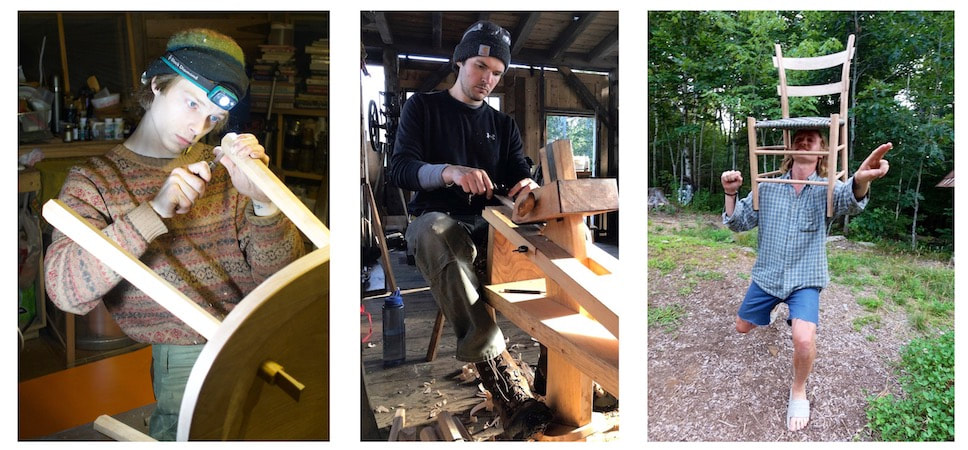
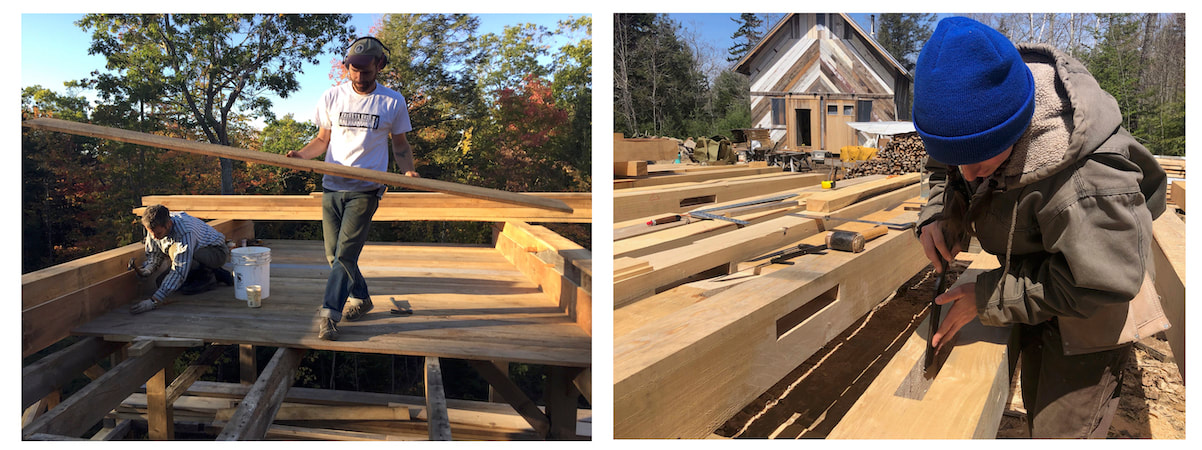
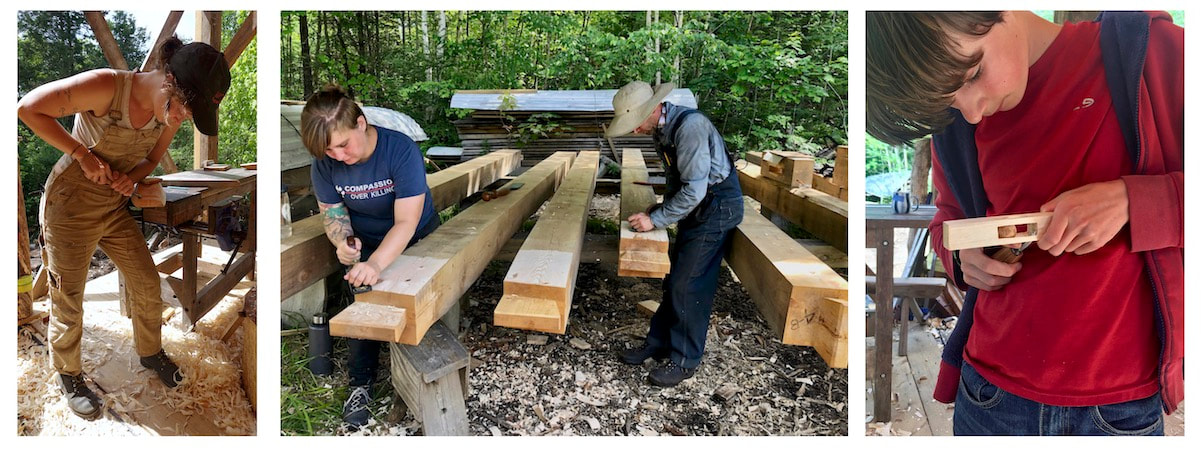
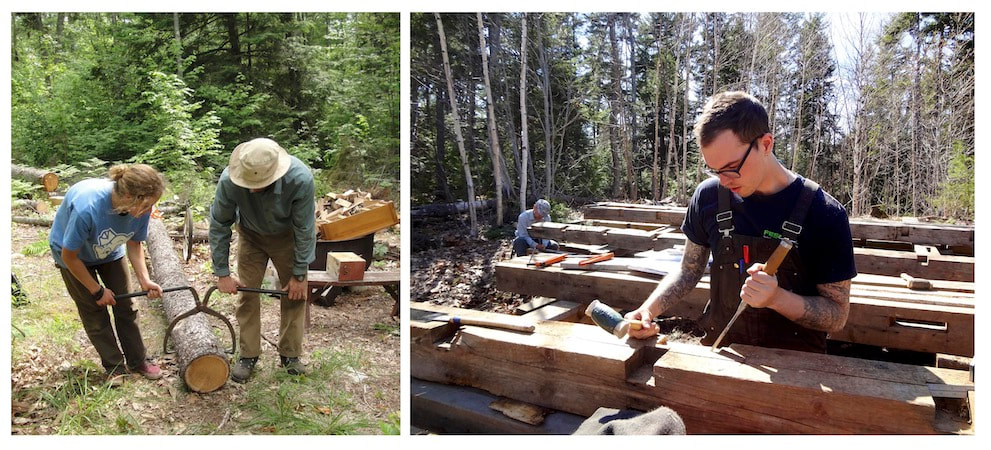
 RSS Feed
RSS Feed